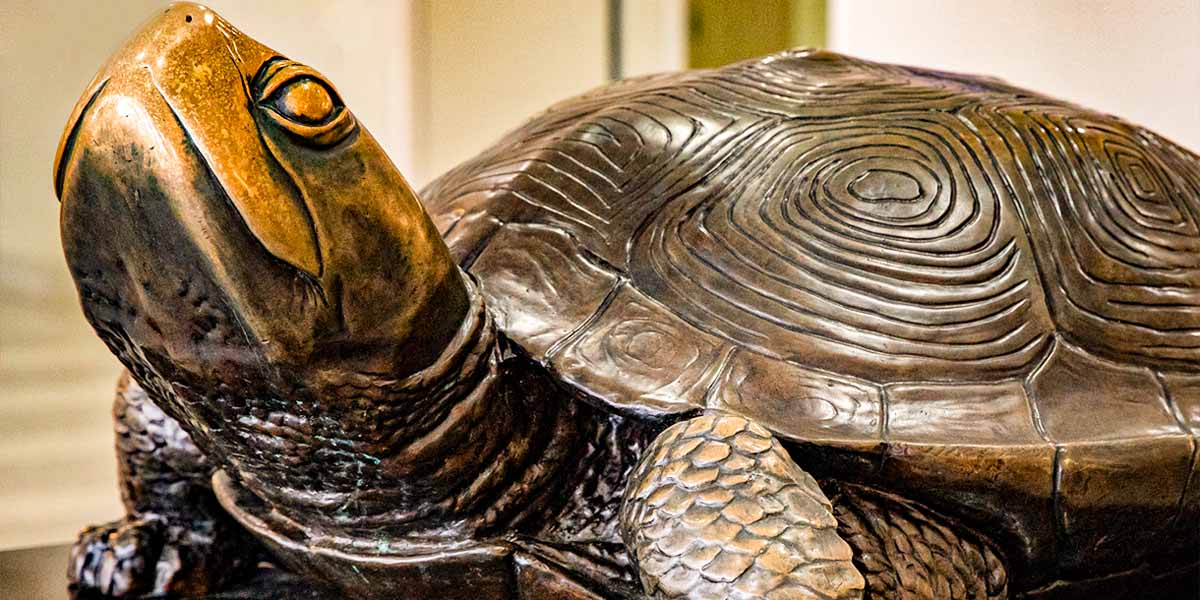
College Park, MD – The University of Maryland College of Information Studies (UMD iSchool) is pleased to announce the addition of nine new faculty members. Together, they bring strengths in a range of human-centered areas of information science: data science for social good, computational social science, computational journalism, socio-technical cybersecurity, user focused web development, future of work, and informal learning.
Keith Marzullo, dean of the UMD iSchool, said he is delighted with the breadth of expertise. “They bring new interests and skills to the iSchool that complement our current strengths. Our students, both undergraduate and graduate, will benefit from the knowledge they bring through the classes they teach and the research they do,” he said.
The UMD iSchool, which is growing rapidly in staff, faculty, students, and space, looks forward to continued excellence and expansion with the addition of this new faculty group. Meet the new faculty members:

Wei Ai, Ph.D.
Joining the UMD iSchool and UMD Institute for Advanced Computer Studies (joint) in January 2020 as an assistant professor in data science
New developments in data science are opening the doors to world-changing social applications. Dr. Ai’s research focuses on harnessing this potential of data science, particularly around machine learning and data mining algorithms. With a background in computer science, economics, and information science, Dr. Ai is creating end-to-end data science pipelines that have real-world applications. He utilizes industrial partnerships, stakeholder collaborations, and hands-on field experiments to develop tangible applications that promote social good. In recent work, Dr. Ai designed and deployed an innovative recommender system on the world’s leading ride-sharing platform, DiDi. Benefiting millions of users, Dr. Ai’s recommender system is helping DiDi to achieve its mission of solving global transportation, environment, and employment challenges. Dr. Ai’s research has been published in top journals and conferences, including PNAS, ACM TOIS, WWW, and ICWSM.
Ph.D., Information, University of Michigan
Previously: Doctoral Student, the University of Michigan School of Information
https://aiwei.me/

Pam Duffy
Joined the UMD iSchool in August 2018 as a lecturer in databases
Databases have undergone a radical transformation in the past few decades. iSchool students whose careers require working with them will need to keep apace with future developments, just as Ms. Duffy has done throughout her career in industry. Ms. Duffy began her career as a field support Systems Analyst for UNISYS in Baton Rouge, LA and spent several years as a Systems Analyst supporting operating systems and programming languages on UNISYS mainframe computers in Baton Rouge, LA and Atlanta, GA. As technology advanced, she transitioned as well, moving from mainframes to smaller systems and from operating systems to relational databases. She worked with both private companies and federal agencies including Washington Gas, BET, the EPA, and the Executive Office of the President. At UMD, she teaches iSchool undergraduates database design and modeling as well as programming. Ms. Duffy is also currently developing an introduction to relational databases and taking classes for an HCIM degree.
Previously: Senior Microcomputer Analyst, Proctor-Silex, Inc.; Senior Computer Analyst/Manager, PRC, Inc.; Consultant, Monarch Solutions, LLC
pduffy@umd.edu
 Babak Fotouhi, Ph.D.
Babak Fotouhi, Ph.D.
Joining the UMD iSchool in January 2020 as an assistant professor in computational social science
Given an increasing amount of our interaction occurs on social media, our social processes are undergoing a transformation. Dr. Fotouhi investigates how the structure of social networks affect different social processes, such as pro-social behavior, and how we can utilize this knowledge towards better collective outcomes. Approaching his work from a mathematical and computational perspective, he worked on modeling the social dynamics on networks at Harvard University, and continued his work on the structure and function of social networks as part of the Human Nature Lab at the Yale Institute for Network Science. In addition to the relation between social networks and behavior, his research interests include the computational study of historical evolution of culture and meanings and the social construction of unquestioned assumptions. Dr. Fotouhi’s research has been published in Nature, Nature Human Behavior, Network Science, and Physical Review, among others.
Ph.D., Electrical Engineering, McGill University
Previously: Postdoctoral associate, Human Nature Lab, Yale Institute for Network Science; James S. McDonnell Foundation Fellow, Department of Organismic and Evolutionary Biology, Harvard University; Fellow, Institute for Quantitative Social Sciences, Harvard University
bfotouhi@umd.edu
 Naeemul Hassan, Ph.D.
Naeemul Hassan, Ph.D.
Joined the UMD iSchool and UMD Philip Merrill College of Journalism (joint) in August 2019 as an assistant professor in computational journalism
The proliferation of open media outlets and sources has resulted in an explosion of news and information – as well as misinformation. Dr. Hassan is a leader in applying data science methods, such as social media sensing, data mining, and natural language processing, to create misinformation mining and computational fact-checking solutions for online news and content. He is known for co-developing a popular automated fact-checking and monitoring platform called ClaimBuster, which assists journalists in ferreting out falsehoods. Currently, Dr. Hassan is designing innovative algorithms that will reduce the harm of social media clickbait. He is also analyzing millions of social media posts from sexual harassment movements, such as #MeToo and #WhyIDidntReport, to help identify the reasons for silence, the potential for social media to further empower sharing, and to mitigate future sexual violence. He has published in reputed computer science and journalism venues including VLDB, KDD, CIKM, AEJMC, and ICA.
Ph.D., Computer Science, University of Texas at Arlington
Previously: Assistant Professor, University of Mississippi Department of Computer and Information Science; Director, University of Mississippi Data Exploration and Research Lab (dear.lab); Research Associate, Qatar Computing Research Institute
nhassan@umd.edu
 Charles Harry, Ph.D.
Charles Harry, Ph.D.
Joined the UMD iSchool and UMD School of Public Policy (joint) in July 2019 as an associate research professor in international cybersecurity
Large-scale cyberattacks are thought to be one of the greatest threats to the planet today. Dr. Harry’s research focuses on the development of an analytic framework for assessing cybersecurity risk including the ability to categorize and measure the impact of cyber events. With over 20 years of experience in intelligence and cyber operations, Dr. Harry is the director of operations at the Maryland Global Initiative in Cybersecurity and a senior research associate at the Center for International and Security Studies at Maryland in the School of Public Policy. He is also part of the U.S. Chamber of Commerce’s Cyber Advisory Panel, has regularly appeared before congressional committees to provide testimony, and is an active consultant to a wide range of public and private organizations. Prior to joining UMD as faculty, Dr. Harry grew and led a $35 million cybersecurity consulting organization and had a 14-year career with the National Security Agency. He is the recipient of the Director of National Intelligence Extraordinary Achievement Medal and the Signal Intelligence Career Achievement Medal.
Ph.D., Public Policy, University of Maryland
Previously: Vice President, Cyber, Orbis Operations; Deputy Office Chief, National Security Agency; National Security Analyst/Economist, Science Applications International Corporation; Analyst, Australian New Zealand Direct LineAustralian New Zealand Direct Line
charry@umd.edu
 Alex Leitch
Alex Leitch
Joined the UMD iSchool in August 2019 as a lecturer in web development
Art and design are everywhere around us, and it is an essential element to our experience of technology. Alex Leitch is a technology consultant and artist whose work focuses on interaction design. As an artist, they have exhibited at the Toronto International Film Festival, multiple galleries, and installation festivals such as Gladstone Hotel’s Come Up To My Room, Ontario Place’s Winter Lights, and Burning Man, NV. In their developer role, Leitch has served as technical lead or senior software developer on many web-based projects. They cofounded Site 3 CoLaboratory, an art and technology makerspace in Toronto. At the iSchool, Leitch is currently teaching basic methods and tools for developing dynamic, database-driven websites, and a class on critical approaches to 3D printing.
Master of Design (MDes), Ontario College of Art and Design University
Previously: Sessional Instructor, Game Design and Experience Design, Ontario College of Art and Design University; Technical Director, Stitch Media; Team Lead, Playground Inc.; Senior JS Developer, Dot Health; Lead Grantwriter, Little Robot Friends; Lead Developer/DevOps, Heist Data & Design
aleitch1@umd.edu
 Susannah Paletz, Ph.D.
Susannah Paletz, Ph.D.
Joined the UMD iSchool in March 2019 as a research professor in socio-technical design and the future of work
Dr. Paletz is a pioneer in exploring psychology at the intersection of teamwork, creativity, and culture. Her research has implications across industries and has been pivotal in research projects spanning information technology, social science, engineering, aerospace, intelligence, and more. Among her many accomplishments, as a member of the NASA Human-Computer Interaction (HCI) Group, Dr. Paletz and the team translated research findings into user requirements that guided the development of several NASA award-winning databases. Her current work focuses on understanding social and cognitive aspects of team processes, particularly in multidisciplinary and/or multicultural teams. She also contributes methodological and psychological expertise to a range of government projects including the role of emotions in social media information sharing.
Ph.D., Social/Personality Psychology, University of California, Berkeley
Previously: Research Psychologist and HCI Group member, NASA Ames Research Center; Research Associate, University of Pittsburgh; Research Scientist, University of Maryland Center for Advanced Study of Language (CASL)
paletz@umd.edu
 M. R. Sauter
M. R. Sauter
Joined the UMD iSchool in September 2019 as an assistant professor in socio-technical approaches to cybersecurity
In an increasingly technology-driven world, M. R. Sauter is exploring how innovation economy companies work with local and national governments to redevelop urban areas and jumpstart lagging economies, and how these new public-private partnerships impact the political and social lives of individuals and communities. Their current research centers on the political history of the innovation economy and the financial models that made it possible. At the UMD iSchool, their research will also delve into the future of work, how the innovation economy impacts land use and urban redevelopment, and how corporate priorities impact the security and rights of individuals and communities online and offline. Sauter is the author of The Coming Swarm: DDoS Actions, Hacktivism, and Civil Disobedience on the Internet. Their work has appeared in The Atlantic, The Journal of Communication, New Media and Society, Vice, and the MIT Technology Review among other national and international venues.
Ph.D., Communications Studies, McGill University (to be defended Fall 2019)
Previously: Doctoral Candidate, McGill University; Cybersecurity Fellow, New America Foundation; Fellow, Berkman Klein Center for Internet and Society
mrsauter@umd.edu
 Caro Williams-Pierce, Ph.D.
Caro Williams-Pierce, Ph.D.
Joined the UMD iSchool in August 2019 as an assistant professor in game design for learning
Dr. Williams-Pierce leverages her expertise in math, education, and information science to develop innovative approaches to STEM education – designing next-generation online and game-based math learning tools. Her research focuses on designing and evaluating digital media for mathematical play using novel mathematical representations and interactions, with a particular emphasis on designing example-based trajectories that support players in developing powerful and detailed generalizations. Dr. Williams-Pierce is also an embodied constructivist who attends to physical gesture, digital action, and spoken language as evidence of generalizing, justifying, and proving. Dr. Williams-Pierce’s innovative approach to game-based learning to promote math learning in K-12 youth has led to recognition of her work by both the academy and industry. At the UMD iSchool, Dr. Williams-Pierce will be an integral member of the Youth eXperience (YX) Lab.
Ph.D., Curriculum & Instruction (Mathematics Education), University of Wisconsin-Madison
Previously: Assistant Professor, University at Albany School of Education (Department of Educational Theory & Practice)
carowp@umd.edu